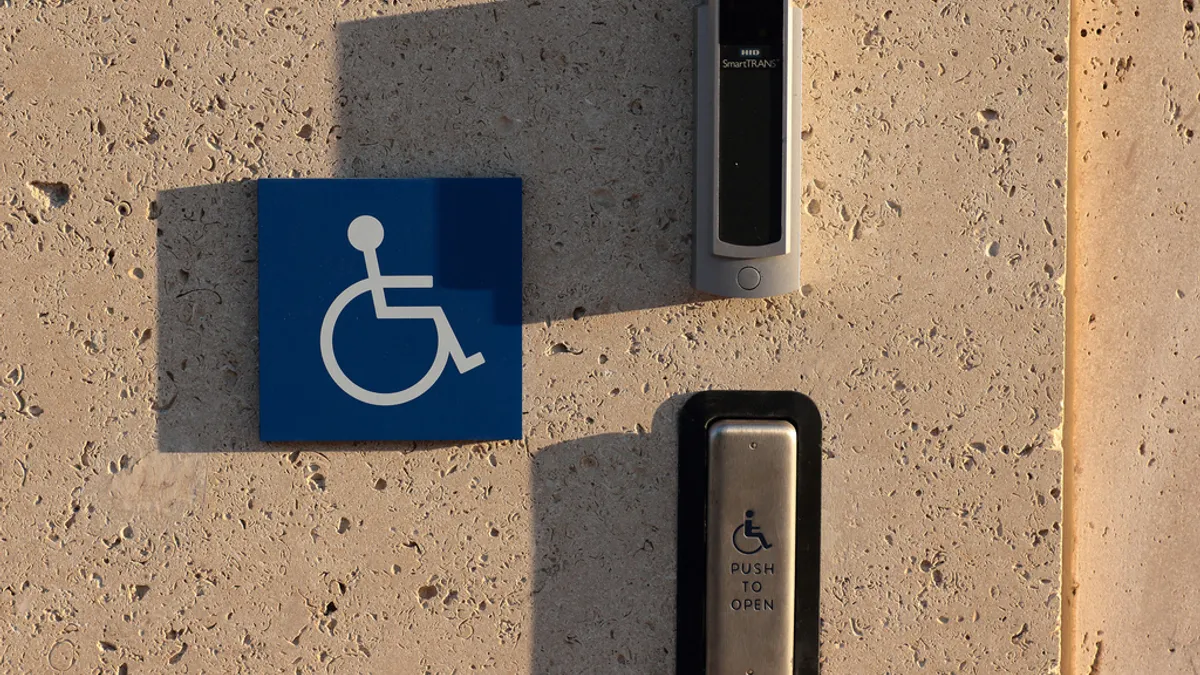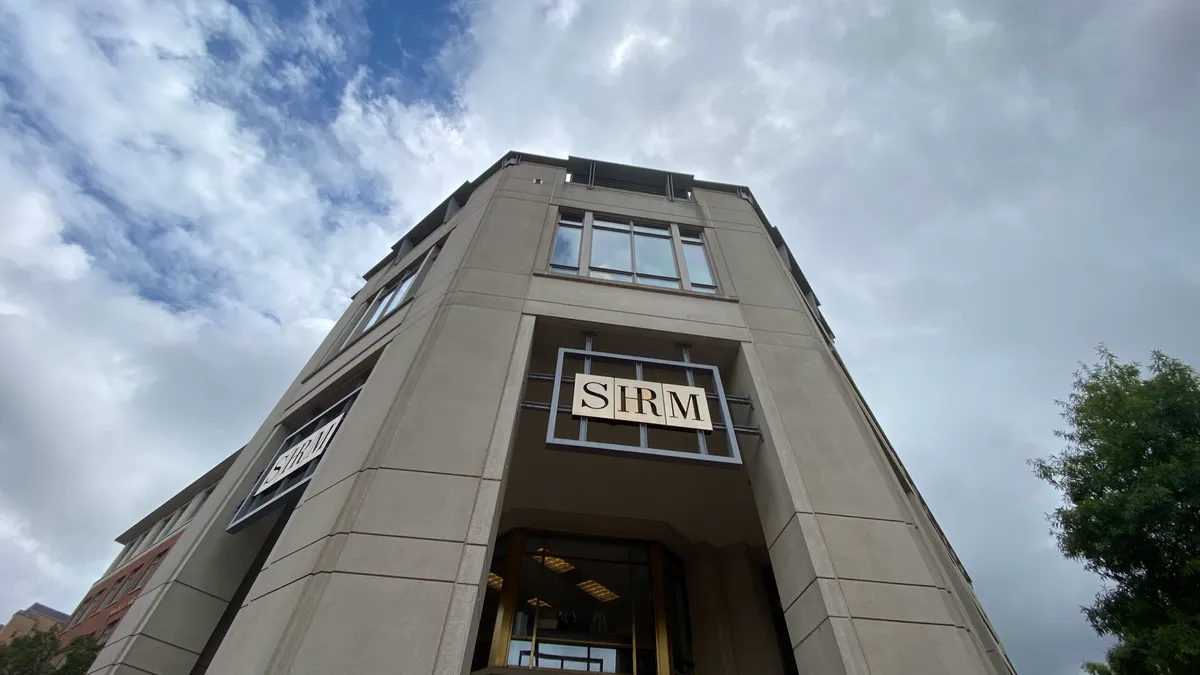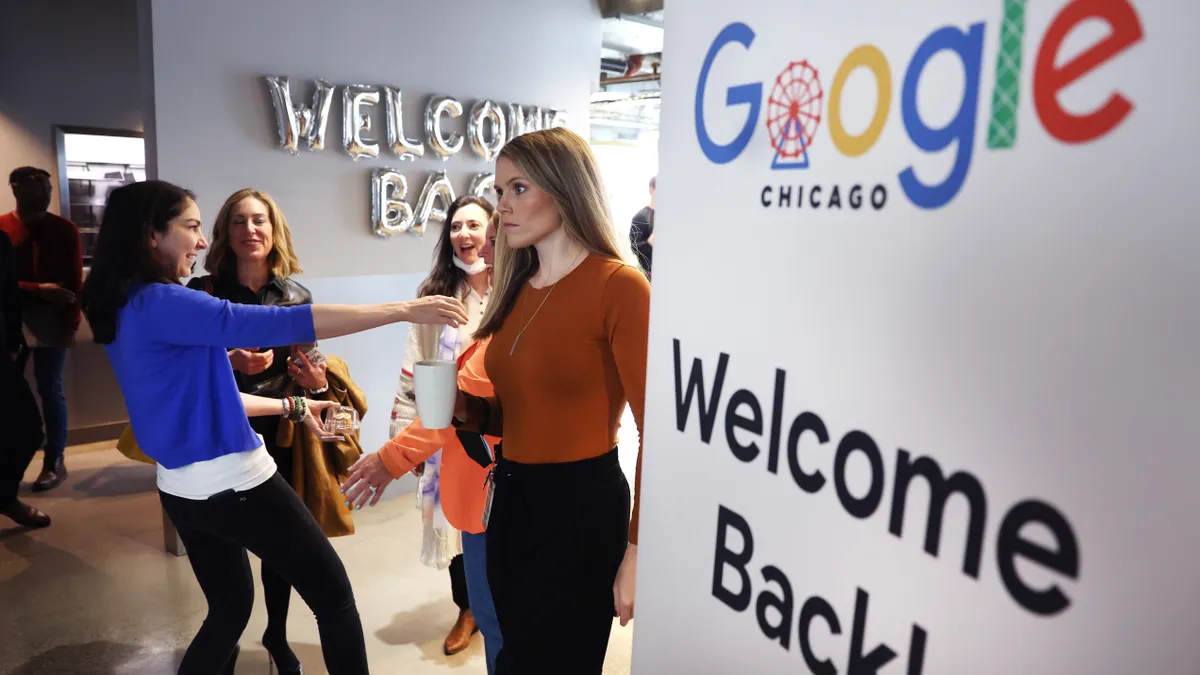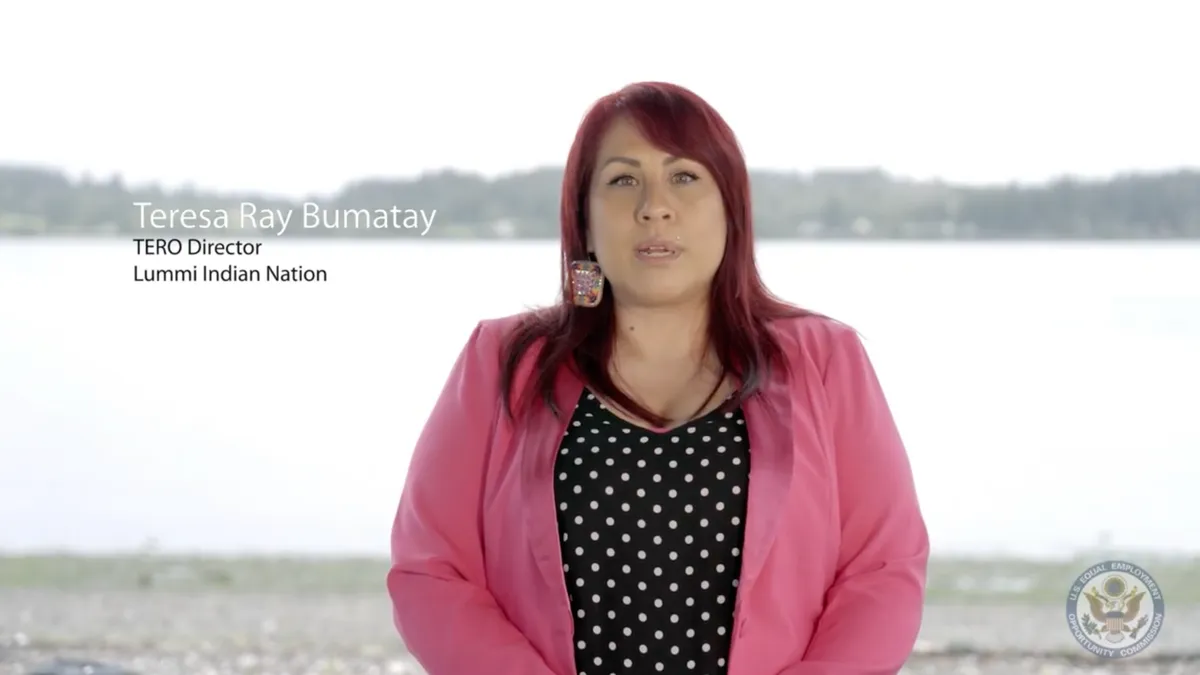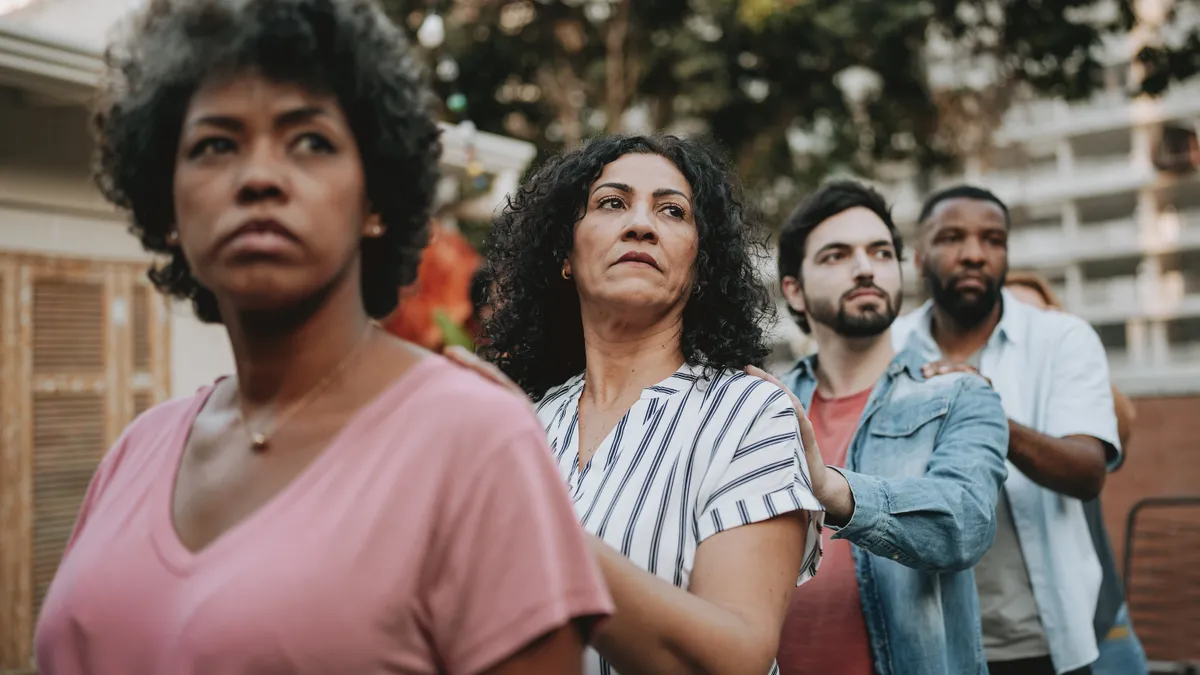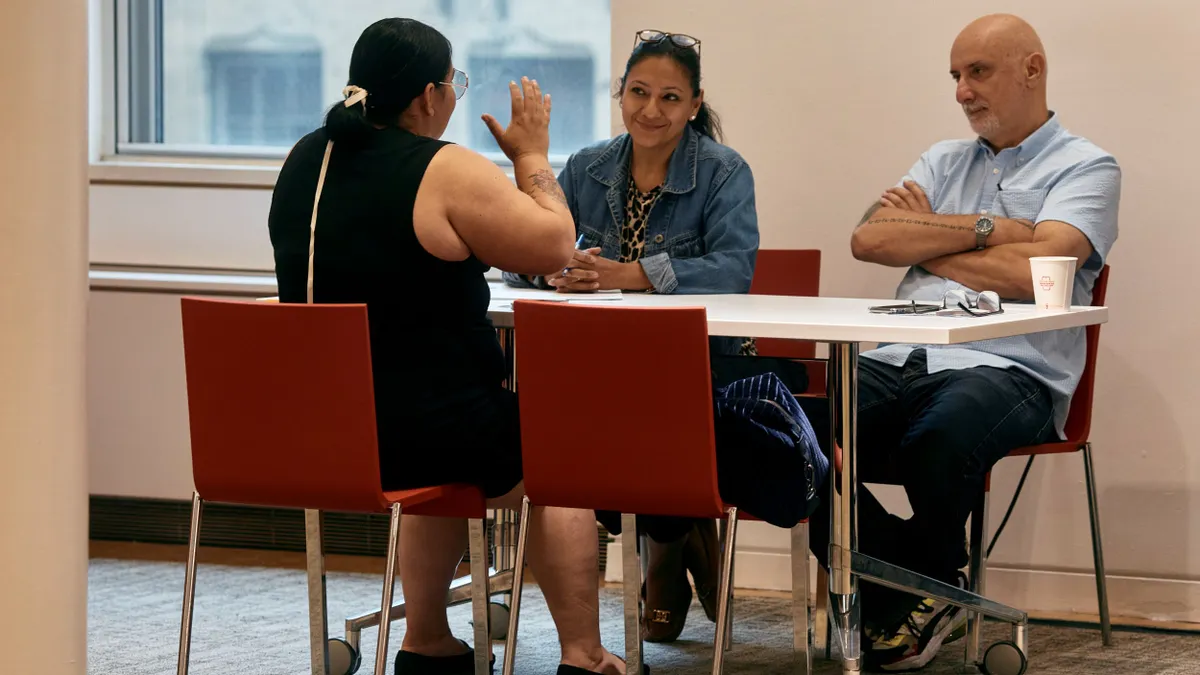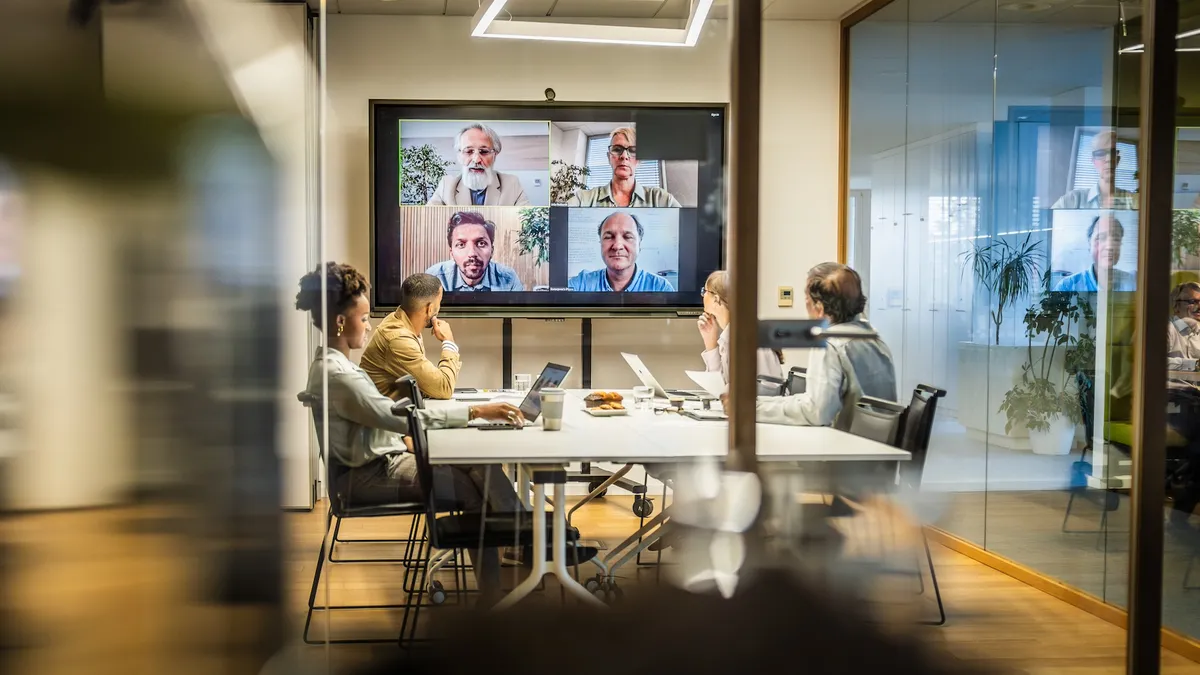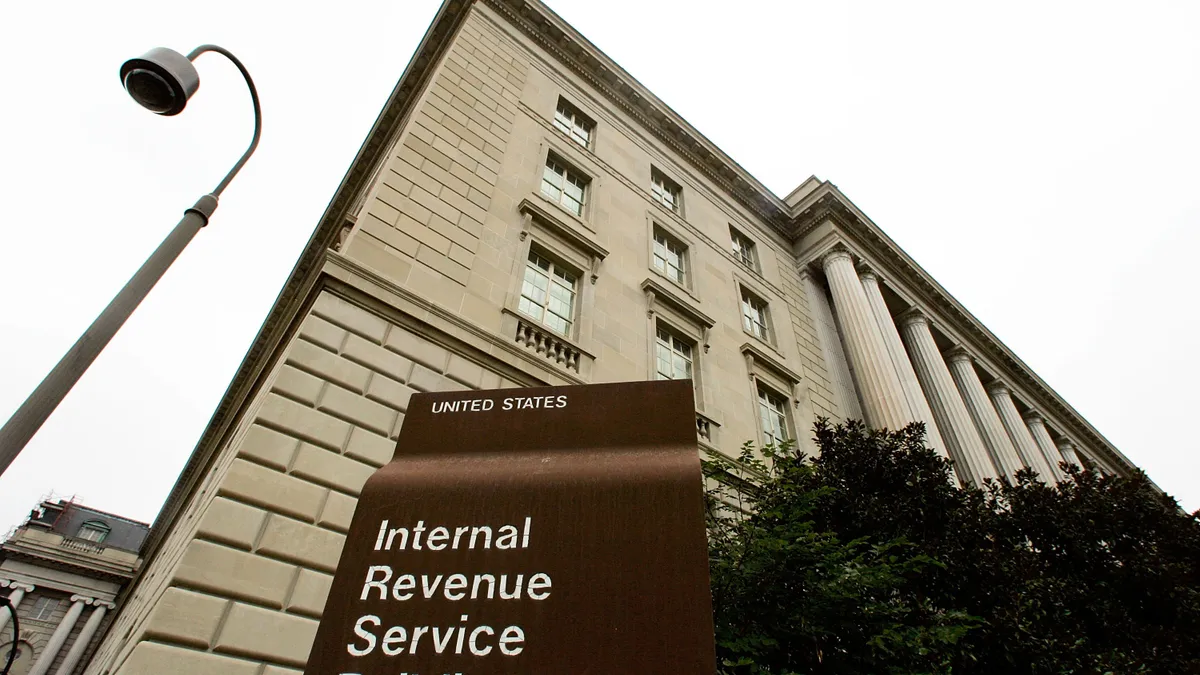After graduating college, Judy Heumann had to win a court case against the City of New York to earn her first job. Heumann, who uses a wheelchair due to polio, has often had to fight for inclusion. Through a lifetime of advocacy for herself and other similarly situated people, she has been involved in countless legal advances for people of all abilities, whether it was the court case that made her the first wheelchair user to teach in New York City, or as part of the administrations of former U.S. Presidents Bill Clinton and Barack Obama.
Heumann spoke with HR Dive about advances in employment equity for people with disabilities and the future of policy in this space. Responses have been edited for clarity and conciseness.
What were your first experiences trying to find employment?
Heumann: When I first entered the world of work, I was doing kind of a cold interview. There was a job opening for a social worker, and I applied for it and had a great phone interview and the woman offered me the job and invited me to come in and meet the team. There was a time and a date. But I had to ask about the accessibility. So I called and said, "I'm a wheelchair user. How do I get in?" … She called me back and basically told me there was no need for me to come in.
How have you seen these conditions improve since you were looking for your first job?
Heumann: At Disabled in Action [a group co-founded by Heumann in 1970], we found out a couple of things.
First, if we could go in and meet with hiring managers and really talk with hiring managers and try to make sure that we were finding people for jobs that were qualified, there was an ability to help people be matched up appropriately ... We were pretty successful with that.
One of the barriers that frequently occurred is employers were reluctant to hire someone with a disability. In many ways, things that are not very different today. What if the person didn't work out? How would they get rid of them? They haven't had experience in this area, in understanding what kinds of accommodations people need.
We've seen progress, certainly with the [Americans with Disabilities Act] under Title One. But I would say that it's clear by the number of unemployed disabled people, that we are not where we need to be.
30 years after the ADA was passed, why do people with disabilities still have difficulty finding work?
Heumann: I really think that both ensuring that disabled individuals have the education they need and the training they need to be able to apply for jobs. They also need to have an understanding of what their rights are under the law. And I think it's really valuable for disabled people to know other disabled people, which in most cases doesn't happen.
You know, many people who have disabilities don't even necessarily know they have a disability. They don't know what discrimination is. So if they've been discriminated against, they may think something, but do they know that it could be a violation of 503 or 504, or Title One of the Rehab Act? I would say typically, they don't. And the system shouldn't have to be driven by that. But I think in many cases it is.
On top of that, the older you get, the more likely it is you're going to have a certain form of disability, you may already have been in the workforce, you may be losing your job because you don't understand what your rights are. In that situation, the employer frequently can encourage people to go out on disability insurance, but that's not what people want to do.
I think we still hear that same story today. Things are improving, but they're not where they need to be at, and COVID actually really concerns me deeply, because we're really just in the beginning of it -- the impact of the virus on the lives of people who didn't have disabilities, are acquiring disabilities, and are working now or may be losing their jobs.
What can organizational leaders do about this?
Heumann: When a barrier exists, it means that somewhere within the organization, there has not been a driving force that says, "I am expecting that we will be not only doing appropriate outreach for the jobs that we are opening up, but that we also will really be doing a real assessment of not only what our obligations are, but what do our current employees think, what our employees are saying about what is it like to be working in our company."
I tell companies that they really need to ensure that their HR people are actually knowledgeable about what needs to happen, so that there is accountability. So that if you talk to employees who are saying that they are not getting the accommodations that they need or the way they're being treated is not in line with what should be happening, those are things that have to be addressed right away.
This is not a mystery. If you hire more people, a percentage of those people should have disabilities. You should be able to look at those numbers, and ask what are the messages that you're giving to prospective employees?
Ultimately, with leaders and hiring managers, it’s about having meaningful discussions, holding people accountable, really having clear guidelines and objectives that you're wanting to achieve. If they're not being done, looking at why they're not being done and taking corrective action. The companies doing it themselves, without needing a law to change behavior, is very important.
What enhancements can be made to employment policy to improve disability inclusion?
Heumann: I'm very much a believer that the government needs to be enforcing the law. To me enforcement also means informing people what their rights are. I would really hope that [eventually], one of the things that we will be able to do is help ensure that people, in this case with disabilities, understand what their rights are under various laws, and not just a disability, because people who have a disability may also be [of different races or sexual orientations], there may be other forms of discrimination that are going on.
So a well informed population and government that recognizes its responsibility to do its job, and a continual drumbeat that allows people to see that disability is a normal part of life and that looking at issues around diversity, that companies that are doing a better job because of their diversity will advance the cause.
More specifically, we don’t have great access to home and community-based services. That is not an ADA issue. Broadly, making sure public transportation and buildings are accessible and that accommodations on the job have more protection. Most accommodations are not costly at all, they are really more a barrier with the employer. I think there’s definitely a need for the law to be stronger on those.


